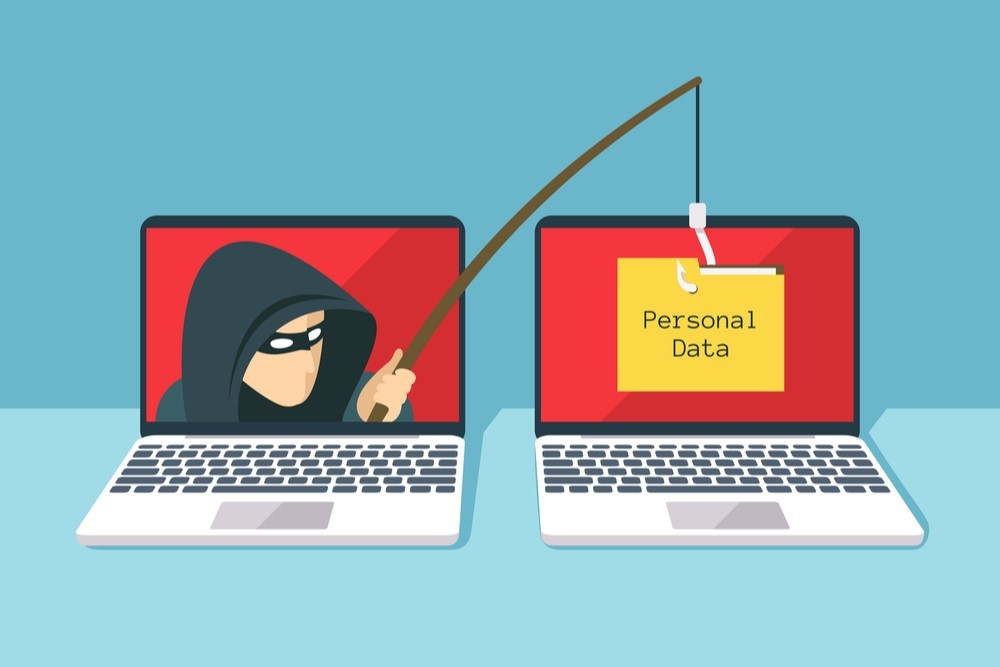Most dentists I know have dozens of things to keep track of even on the slowest day, and it’s not surprising that cyber security is often far down the list of concerns of the clinics that I talk to.
Unfortunately, cyber criminals seem to be taking advantage of this situation: cyber attacks now impact hundreds of dental offices in the United States alone every year. In some cases, these attacks are so devastating that they cause clinics to close for an extended period while they prepare to start seeing patients again.

Fortunately, protecting yourself from common forms of cybercrime like phishing, malware, and ransomware is fairly straightforward, if you have the right software and a staff trained to recognize potential threats.
Here are four ways you can improve security and training at your clinic this year.
1. Make Cyber Security Part of Your Practice
We all have a tendency to believe that things like cyber attacks won’t happen to us. Psychologists call this the “optimism bias“. And while it makes it easier for us to go through life, it can also leave us vulnerable.
Countering optimism bias requires that you train your workers to view cyber threats not as something that could theoretically happen, but as something they should be on the look out for every day.
Normalizing cyber security routines that require weekly check-ins and following digital best practices are the first steps you should take to guide your staff to be more aware of the danger of cyber attacks.
2. Help Your Employees Recognize the Risks
Phishing is a form of cybercrime in which targets are contacted through text, email, or by phone with the phisher posing as a legitimate institution. Phishing scams will take advantage of this familiarity in order to pry sensitive data such as banking and credit card info, passwords, or answers to security questions.
Here are some of the most common signs that you might be dealing with a phishing scam:
- Requests for personal financial information
- Poor grammar and bad spelling
- Threatening language (e.g. “Your account will be closed if you don’t act now!”)
- Suspicious links (e.g. nonsense links, or links to misleading domain names)
- Unrecognized senders
To avoid falling victim to phishing scams, be wary of messages that carry a false sense of urgency and ignore any links you may be asked to follow. Remember, your bank or any other professional institution will never ask you to login by phone or by following prompts other than the ones you’ve used in the past.

You should also be aware that criminals are constantly developing new viruses and attack methods in order to continue to attacking the vulnerable. Cyber criminals have been using email as a vector for infecting computer systems with malware and ransomware for years, but they have also started to use social media apps like WhatsApp, Facebook, and iMessage to launch their attacks.
Ransomware is a method of cybercrime where malicious software or malware is designed to deny a company access to their own servers or internal systems until a ransom is paid. Ransomware can be a follow-up attack to a phishing attempt and can be devastating for mid-sized, data-based companies like dental clinics.
To avoid succumbing to this form of attack, be sure to continually update your computer Operating System (OS) and anti-virus software with the latest patches and do not click on links or open any attachments sent in unsolicited email. Most of us are fairly trusting and scammers use this behaviour against us by sending emails that can seem legitimate or harmless. Train your staff to recognize these warning signs, and report any unusual messages.
3. Make Regular Backups Part of Your Routine
It’s not always possible to avoid cyber attacks altogether, so it’s also important to ensure that you’ll be able to bounce back quickly if the worst does happen.
Dental clinics need to keep track of huge amounts of data, the loss of which can be absolutely disastrous. For this reason, you should make regular backups a mainstay of your routine.
Look for sophisticated cloud storage solutions that automate backups and come with expert support, so that if the worst does happen, you’ll be ready to pick up where you left off.
4. Use Software that Enhances Cyber Security Capabilities
When you’re looking for software solutions that can help you make cyber security easier and more efficient for your employees, you should look for tools that will mesh well and supplement your anti-virus software for additional protection. Solutions such as ABEL Guard (AppGuard with ABEL’s dental specific templates) prevents new viruses from harming your system until your anti-virus software is updated to eliminate those viruses.
Also consider switching to a dental cloud server based platform that by default will provide maximum protection against cyberattacks since practice data is stored in and assessed from secure cloud servers – an added benefit is automated continuous data backups are always current should your practice data ever need to be restored for any reason.
In conclusion:
It is best to be proactive and stay one step ahead of cyber criminals as much as possible. Make sure you have antivirus and additional security software for maximum protection as well as employed a cloud-based backup system to limit any negative effects should you be hit by an attack.
During my time at ABEL, I have become convinced that a combination of the right tools and the right training can make all the difference when it comes to keeping your clinic safe from attacks. Get in touch with us today if you want to learn more about how we can help you improve your security and security awareness.



